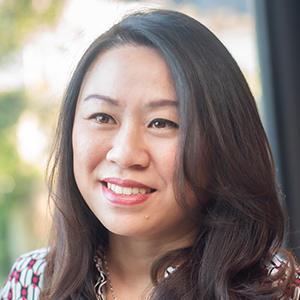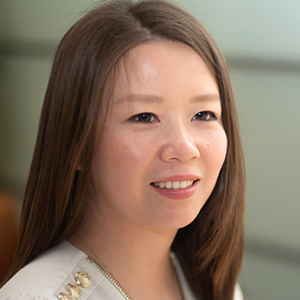In October 2020, the UK government announced the new Hong Kong BN(O) Visa, which will allow BN(O) citizens to reside and work or study in the UK, with a route to settlement and then citizenship. The BN(O) Visa will be open for applicants and their close family members from 31 January 2021.
In this article, our immigration partner Christine Chiew and paralegal Chelsea Qu answer the key questions about the new visa and how you can apply.
To read the Chinese version of this article, please click here.
Who can apply for a BN(O) Visa?
The main applicant should be a BN(O) national, and the Home Office has referred to this main applicant as the “BN(O) Status Holder”. Practically, this means the applicant should have a current or expired BN(O) passport as this demonstrates the applicant has acquired BN(O) status under the Hong Kong (British Nationality) Order 1986.
Eligibility for the main applicant under the new visa category will be based primarily on being a BN(O) national with no prohibited criminal history or character-related concerns.
The application does not require skills tests, job offers or economic tests and there are no caps on numbers.
The key requirements applicants need to meet are that they should:
- be ordinarily resident in Hong Kong, which includes those currently in the UK but who are ordinarily resident in Hong Kong;
- be able to demonstrate their ability to accommodate and support themselves in the UK for at least six months;
- pay the visa processing fee and the Immigration Health Surcharge; and
- have no serious criminal convictions, have not otherwise engaged in behaviour which the UK Government deems not conducive to the public good, and not be subject to other general grounds for refusal set out in the Immigration Rules.
Can close family members apply to join the main applicant?
Close family members of the BN(O) Status Holder can apply to join him/her in the UK. Close family members of the BN(O) Status Holder are:
- Spouse members (i.e. husband and wife)
- Civil partners (i.e. same-sex marriage)
- Unmarried partners – this requires unmarried couples to have lived together for more than 2 years
- Minor children under 18 born to a BN(O) national or his/her partner (known as “BN(O) Household Child”). This includes minor children under 18 who have a BN(O) grandparent.
- Adult children aged over 18 born to a BN(O) national (known as “BN(O) Household Member”)
- Dependent partner of the BN(O) Household Member (spouse or civil partner)
- Dependent children under 18 of the BN(O) Household Member
With all these close family members, there is a requirement that they apply at the same time as the BN(O) Status Holder. The policy states that:
“You and your family members must all apply together at the same time. If your family members do not apply with you, they will not be able to apply for the Hong Kong BN(O) visa to join you later.”
Apart from close family members, the BN(O) national can also apply for Adult Dependent Relatives (ADR): this is defined as the BN(O) Status Holder’s or their partner’s parent, grandparent, brother, sister, son or daughter. The requirements for ADR are quite difficult to meet as they need to prove the following:
(a) The ADR, as a result of age, illness or disability, requires long-term personal care to perform everyday tasks;
(b) the ADR stays within the same household as the BN(O) Status Holder; and
(c) the ADR is unable, even with the practical and financial help of the BN(O) Status Holder or his/her partner, to obtain the required level of help in Hong Kong because:
(i) the help is not available, and there is no one else in Hong Kong who can reasonably provide it, or (ii) the help is not affordable.
(ii) The BN(O) Status Holder also needs to apply at the same time as the ADR. The above (a) to (c) requirements mirror the wording under Appendix FM, which has been applicable to all non-EU ADR since 2012.
Do family members really need to apply at the same time? What happens if they do not?
Close family members and ADR will need to make their application at the same time as the BN(O) Status Holder. Practically, if the family wishes to migrate to the UK, we advise that an application be made at the same time. If one of the family members need to return to Hong Kong thereafter, they can return once his/her visa has been approved.
What are the residency requirements to obtain settlement (known as Indefinite Leave to Remain)?
The BN(O) Status Holder and his/her family members can apply for settlement (known as Indefinite Leave to Remain) after 5 years’ Continuous Residence in the UK. Continuous Residence means the BN(O) Status Holder and each family member needs to each have no more than 180 days’ absence in any 12-month period.
Can the BN(O) Visa application be made within the UK?
Absolutely. If the BN(O) Status Holder is already in the UK, he/she can apply from within the UK.
What are the financial requirements?
If the BN(O) Status Holder and his/her family have been living in the UK for the past 12 months, they will automatically meet the financial requirement for themselves. For BN(O) Status Holders who are applying from Hong Kong or have been living in the UK for less than 12 months, they need to demonstrate that they can maintain and accommodate themselves for at least 6 months.
The Home Office states that accommodation should not be ‘overcrowded’. This means that there should be enough rooms to accommodate each family member. The Home Office also permits “credible promises of future third party support”.
This means that if the BN(O) Status Holder has friends, family or any other persons who are willing to provide finances or accommodation to them, the Home Office may also consider this as evidence.
Can applications be made before 31 January 2021?
Those who wish to apply for the BN(O) visa can apply and travel to the UK once it is fully operational from January 2021.
However, some may wish to travel to the UK sooner, they can apply for “Leave Outside the Rules” (LOTR) at the UK border (i.e. at the UK airports) or within the UK if they are already in the UK. If successful, the LOTR will be granted for 6 months and the BN(O) Status Holder and their family members can then switch to the BN(O) Visa after 31 January 2021.
What are the application fees?
The Home Office’s fees are split into application fees and Immigration Health Surcharge (IHS) fees. For application fees, the BN(O) Status Holder can choose to apply for a 2.5-year BN(O) Visa or a 5-year one. The Home Office’s application fees are as follows:
- £180 for a 2.5-year BN(O) Visa
- £250 for a 5-year BN(O) Visa
For IHS fees, the fees are £624 per year for adults and £470 per year for children. This means an adult’s IHS fee will be £3,120 for a 5-year BN(O) Visa, with a child’s one being £2,350.
Are there rights of appeal?
Currently, there is no right of appeal to a court of law but instead, the Home Office has given applicants the right to have an “Administrative Review” if they fail in their application. For Administrative Reviews, the applicant needs to provide their reasons as to why the decision from the immigration officer is wrong. A senior immigration officer will then review the Administrative Review grounds written by the applicant and consider whether to withdraw the original decision of the immigration officer or maintain its refusal.
Although it can be concerning that the Home Office essentially has the power to review its own decisions, there is accountability in that if the decision of the senior immigration officer is fundamentally flawed, the applicant may wish to pursue a “Judicial Review” application through the courts.
If you would like more information of the BN(O) Visa or advice on how to apply after 31 January 2021, please contact Christine Chiew or Chelsea Qu.
This article is for general information purposes only and does not constitute legal or professional advice. It should not be used as a substitute for legal advice relating to your particular circumstances. Please note that the law may have changed since the date of this article.


